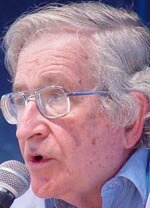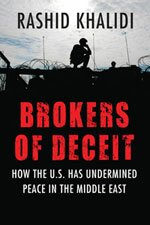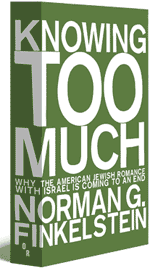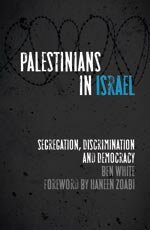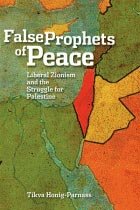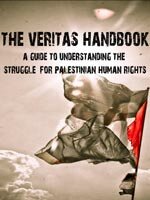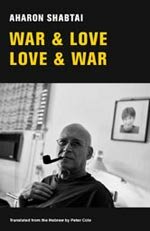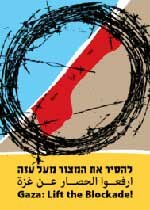White House press secretary responds to plan to build 900 new housing units in Jerusalem neighborhood, says ‘neither party should engage in efforts or take actions that could unilaterally preempt, or appear to preempt, negotiations’
Gilo neighborhood reaction: “Who are they to decide for us where to build?” And “[t]his is a neighborhood within Israel and it hurts me to see that the Americans, who are operating in Iraq without blinking, tell us what to do inside Israel.” More: Ynetnews story
IOA Editor: And Occupations will be had by all.
An influential Jewish community leader and Democratic state assemblyman from New York is currently heading a mission of about 50 Americans through the West Bank and East Jerusalem to promote home purchases in the area and to protest U.S. President Barack Obama’s Middle East policy.
[U]nlike the Hamas government, our government does not pay the salaries of rabbis who advocate the killing of babies. Is that so? Not really. For example, government ministries regularly transfer support and funding to a yeshiva whose rabbi determined that it is permissible to kill gentile babies “because their presence assists murder, and there is reason to harm children if it is clear that they will grow up to harm us … it is permissible to harm the children of a leader in order to stop him from acting evilly…”
Residents of Ras Hamis, an East Jerusalem neighborhood east of the separation fence, say two children died in a house fire two weeks ago while a fire crew had to wait 200 meters away at a checkpoint for lack of Border Police or army escort.
Burin resident discovers 97 of his olive trees destroyed overnight. ‘When I saw the massacre which took place on my land, I cried.’
IOA Editor: Twenty first century Jewish cossacks continue to carry out pogroms against Palestinian farmers. (For the urban version, see Ellen Cantarow’s “Heroism in a Vanishing Landscape.”) This is nothing short of a state-sponsored ethnic-cleansing campaign designed to rid “Judea and Samaria” of its Palestinian inhabitants so as to make room for the ever-expanding Jewish State.
“Disputed” is a word often used about East Jerusalem and homes in Sheikh Jarrah. Would the international community have considered the homes of American blacks attacked by the Ku Klux Kla as “disputed”?
“The Israeli occupation impacts on the lives of Palestinian women at every juncture. From sexual harassment and assault, discriminatory treatment of Palestinian female prisoners to being forced to give birth at Israeli checkpoints,” Dima Nashashibi from WCLAC told IPS.
The Israeli army has targeted [Mohammed Khatib]. He was arrested, severely beaten and threatened with death during a series of midnight raids on the village this summer. He was freed on condition that he report to an Israeli police station each Friday at the hour of the weekly protest… Relative calm prevails in the Palestinian territories, but Khatib says it cannot last long under the diplomatic impasse… He believes Israel is trying to crush nonviolent activists because it would rather take on an armed insurgency.
IOA Editor: Israel’s favorite Palestinian Occupation-resister is one ‘throwing a bomb’ – and the more violent, the better. It is much more difficult to defend shooting non-violent Bilin demonstrators, though, Israel manages to get away with murdering demonstrators just fine.
The 4,500 Palestinian workers who travel through the Eyal checkpoint, near West Bank city of Qalqilya, on their way to work in Israel, are finding it hard to enjoy the long-awaited winter. The checkpoint provides cover for those waiting to cross it, but its little shed can shelter about 100 people at the most, leaving the rest exposed to rain and cold winds.
“They can go to Syria, Iraq, Jordan. We are six million and they are billions,” said Yehya Gureish, an Arabic-speaking Yemen-born Jew who said his family owned the land and had Ottoman Empire documentation to prove it. “This land is Israel. We are in Israel. God gave this land to the Jews. The Torah tells us so. You want war? Declare war on God, not on us,” he said.
IOA Editor: Clearly, an educated, sensitive Israeli explanation of the root cause of the conflict.
It’s reasonable to assume that if Yaakov (Jack) Teitel had focused only on attacking Palestinians, he would have encountered few problems with law-enforcement authorities. His big mistake, it seems, was targeting non-Arabs as well. Experience – and statistics – show that Israeli law enforcement is remarkably lax when it comes to tackling violence against Palestinians.
Israeli authorities are increasingly targeting and intimidating non-violent Palestinian grassroots activists involved in anti-occupation activities who are drawing increased support from the international community.
Most [friends of Israel] cannot understand the clear conscience of “the only democracy in the Middle East,” which does not hesitate to hold an entire people under occupation and siege, and at the same time punctiliously presents itself as always, in any situation, as the innocent victim of the hostile gentiles.
IOA Editor: This commentary is important in that it reflects the concerns of enlightened Israelis for the loss of the support Israel historically enjoyed in the West. In other words, global pressure against the Occupation and violations of international law works and must continue.
It was the sixth known forced return to Gaza of Palestinians stopped at [this] checkpoint… in 10 days, according to the Israeli human rights group Gisha. Israel has also been preventing family reunifications in the West Bank for Palestinians with relatives living in Gaza, in effect forcing people to relocate to the Strip. The steps are part of an Israeli policy of treating Gaza and the West Bank as two separate entities, thereby undermining the coherence of Palestinian claims for a state encompassing both territories. The 1993 Oslo agreement stipulates that the West Bank and Gaza Strip are to be treated as one territorial unit.
“When we [Israelis] say that this is a political conflict, then we lose the battle,” he told the Guardian, adding that it should be remembered that the ancient land of Israel is “given to us by the Bible, not by some United Nations”.
In August, police evacuated two extended families — 53 people, including 19 minors — from their homes after the Israeli supreme court upheld a settler organisation’s claim to the properties.
“Ma’aleh Adumim was built on lands of the Jahleen; these people were pushed to the edges of the community,” [attorney] Lecker said. “This is not a hostile population and the city should be interested in ensuring that this community is not hungry.”
Amnesty:
-450,000 West Bank and E. Jerusalem settlers consume as much as or more water than the 2.3 million Palestinians living in the West Bank.
-Palestinian per capita consumption of 70 litres per day compares with the WHO recommended level of 100 litres and Israeli consumption of 300.
-180,000 to 200,000 Palestinians living in rural communities, especially in the Israeli controlled “Area C” (60% of the West Bank), have no running water.
-The Israeli military “often” prevents them from accessing rainwater by destroying water-harvesting cisterns or even confiscating water tankers.
Israeli senior defense official: “The settlers are very much in tune with the ticking political clock… You can sense it on the ground, with the infrastructure work that is being done, but also in more minor things. They are acting without any legal authorization and are ignoring the state… whoever can, goes ahead and builds… It begins with the official leadership of the Yesha Council [of settlements] and ends with the hilltop youth.”
The International Women’s Media Foundation honoured Israeli journalist Amira Hass with 2009 Lifetime Achievement Award. Amira Hass is a regular columnist with Israel’s Ha’aretz newspaper and the only Israeli journalist to have spent several years living in and reporting from Gaza and the West Bank.
While a new entrepreneurial class dines in restaurants, four out of five Gazans… live in poverty; 20,000 war victims are still displaced. Gazans in rural areas continue to scavenge for basics, and mercantile families have begun to collect UN food rations. Short of gas, old men bent double haul bundles of wood. It’s not just the loss of their savings: Gazans complain that their leaders sheltered underground during the war, leaving their people exposed to the shelling.
West-Bank village of Al-Mughayir – Some 200 Palestinian-owned olive trees cut down by settlers (The Economist, 15 Oct 2009). Palestinian Agricultural Ministry: “nearly 500,000 olive trees have been bulldozed, burnt down or uprooted in the territories since the second intifada.”
West-Bank village of Al-Mughayir – Some 47 Palestinian-owned olive trees cut down by settlers (YNet News, 20 Oct 2009). “… complaints are of no use… Only several weeks ago that same farmer filed a complaint with the police and nothing helped. We filed at least 20 complaints over the last two years to no avail.” Rabbis for Human Rights organization said that IDF and the police, which have promised to deal with the offenders were not doing anything to stop the sabotage.
“The West Bank today is a hothouse for weeds,” the officer said. However, he stressed, most of the Jewish settlers are “normative” individuals.
IOA Editor: As “normative” as an Occupier is.
For an excellent analysis of the settlers role and impact, see Nicolas Pelham’s Israel’s Religious Right and the Peace Process.
Abu Awad lost 70 olive and 10 almond trees in the pogrom. A neighbor, Sudki Abu Aleiah, lost 120 olive trees. The Shehadah family lost 120 olive and 20 fig trees. Altogether, 340 fruit trees were cut down in one night of savagery… On one of the stumps, a single branch has survived, torn and twisted sideways. Abu Awad cuts it off and hands it to us as a memento. An olive branch from a tree that has been cut down. There are tears in his eyes.
Human rights activists monitoring the West Bank report that… widespread building activity commenced three weeks ago in at least 12 settlements: ground preparation, pouring concrete and drilling construction foundations. This work is not part of the projects that Israel and the United States had reached an understanding on.
IOA Editor: Occupation as usual.
“It’s quite simple and smart but evil,” said Michael Sfard, a lawyer with the Israeli human rights group Yesh Din. “They attack Palestinian property, people, and blockade roads every time the Israeli security forces do something they don’t like” — such as demolish outposts.
On Wednesday we – members of the Combatants for Peace movement, women of Machsom Watch, members of the Forum of Bereaved Families for Peace and writer David Grossman – attended a hearing at the [Israeli] High Court of Justice on the matter of the closing, due to lack of evidence, of the investigatory file on the killing of ten-year-old Abir Aramin about three years ago.
IOA Editor: Reported by Nurit Peled-Elhanan, an Israeli peace activist and professor at Hebrew University, among the founders of the Bereaved Families for Peace. After the death of Elhanan’s 13 year-old daughter in a 1997 suicide bombing attack she became an outspoken critic of the Israeli Occupation.
Israel is violating international law by detaining hundreds of Palestinians, some of them for years without charge or trial, two leading human rights groups in the country have said.
READ the B’Tselem report announcement
WATCH the Al Jazeera TV report
“Israel has no intention of relinquishing its control over all of Palestine and, moreover, that it is actually bent on destroying Palestine as a nation through killing or expelling its people, appropriating its land, and strangling its economy.”
[Israeli West Bank outposts] “are snapshots of the way many settlements looked a decade or two ago and, in fact, how towns inside Israel looked after its 1948 conquests. They are symbols of Zionism’s onward march.”
Israeli authorities have demolished two Palestinian-owned structures in East Jerusalem, in defiance of international calls to stop such actions.
There are currently thousands of “mixed” Palestinian families, with one partner an Israeli citizen and the other a resident of the territories… the lives of these families became more and more complicated. Every entry and exit was accompanied by an exhausting bureaucratic process. Following the intifada, the regulations were stiffened further.
Israel has 592 obstacles such as checkpoints, trenches and barriers across the occupied West Bank and a report that Israel was removing 100 such curbs can not be verified, a UN agency said on Friday.
The IDF banned Israelis from olive groves near Jewish settlements throughout the West Bank this week to enable Palestinians to harvest olives unhindered for two or three days. However, olive farmers and human rights groups say the harvest cannot be completed in that time.
[Bil'in] residents say the IDF conducts nighttime raids up to four times a week, sometimes using percussion grenades and tear gas and sometimes also entering homes, which has led to Israeli activists staying overnight in village homes.



















